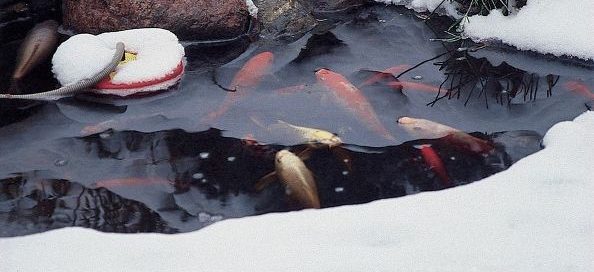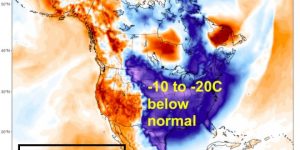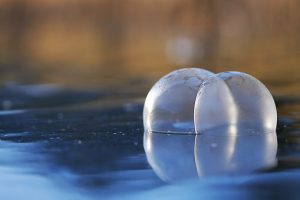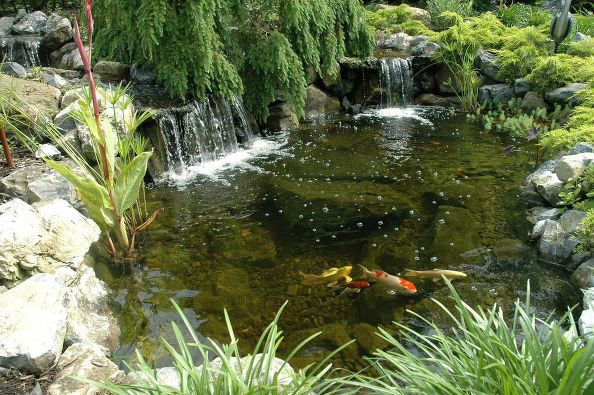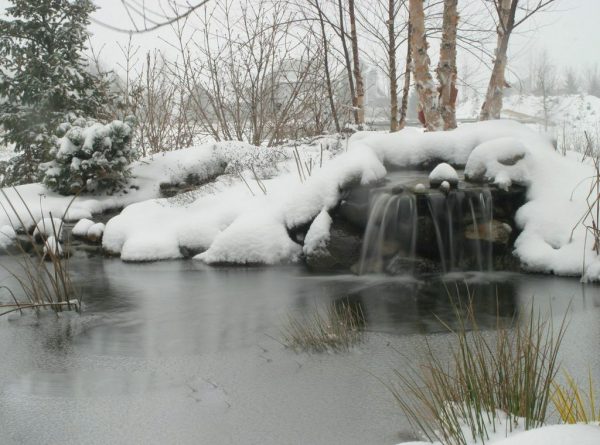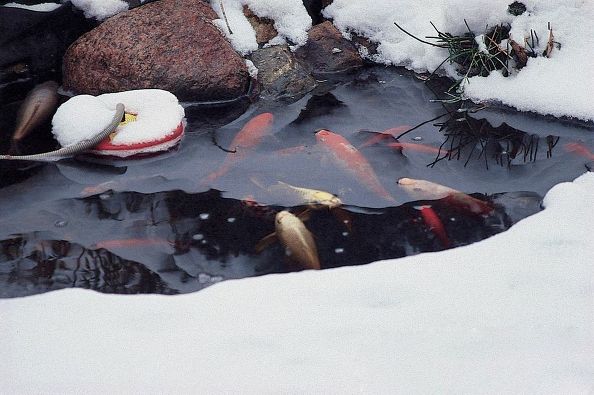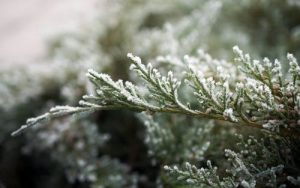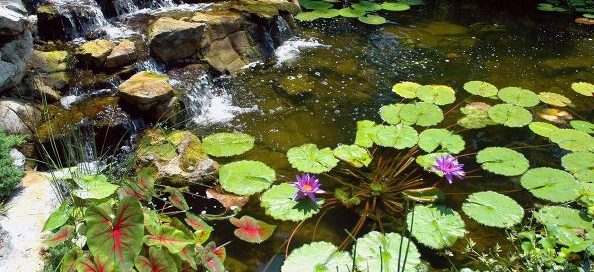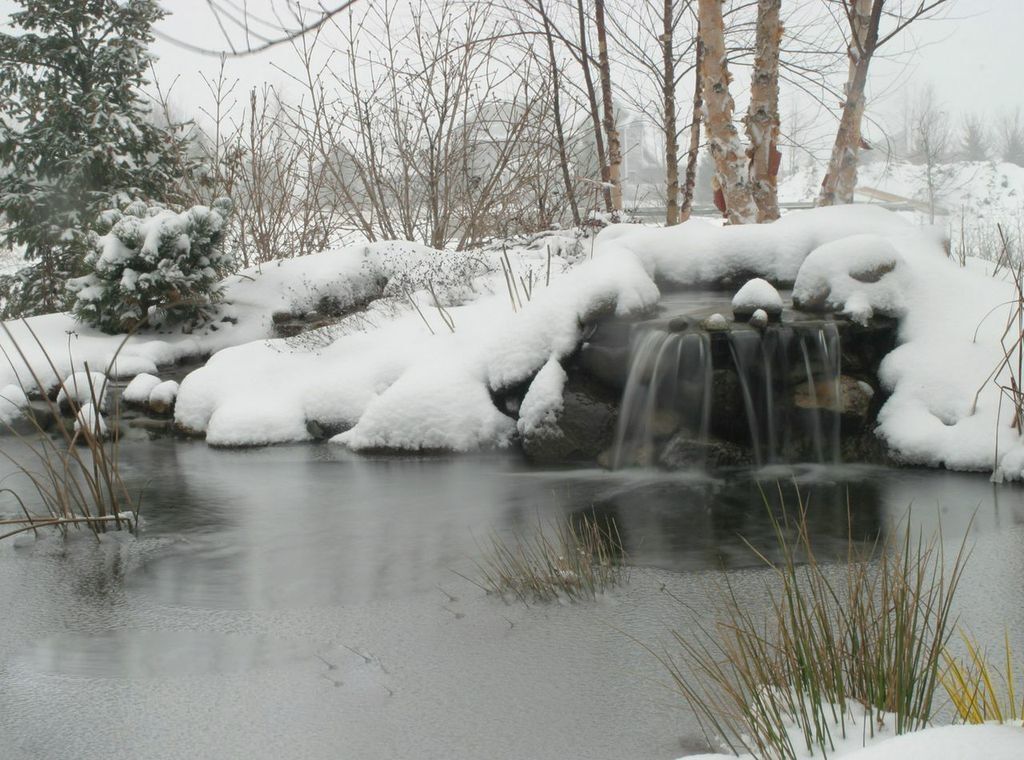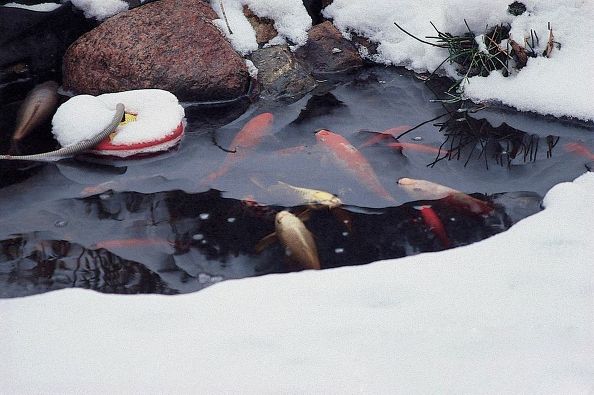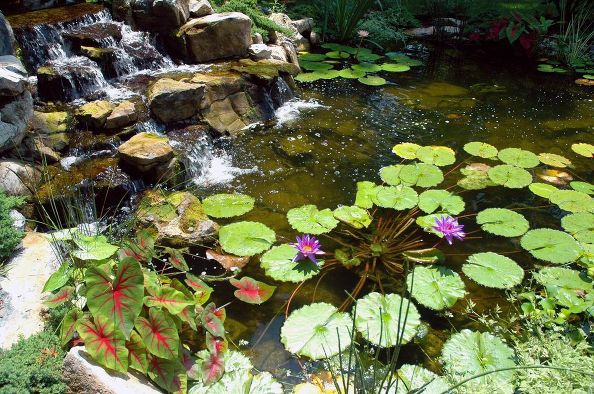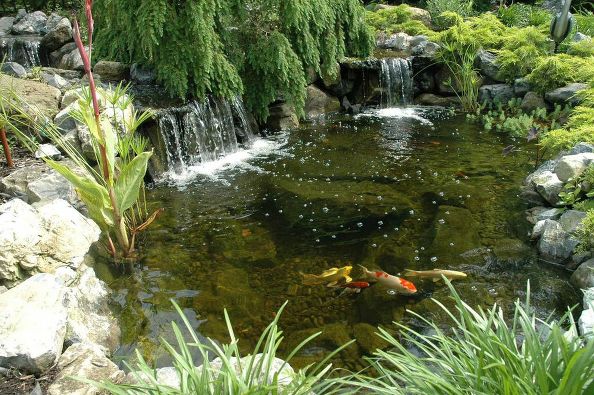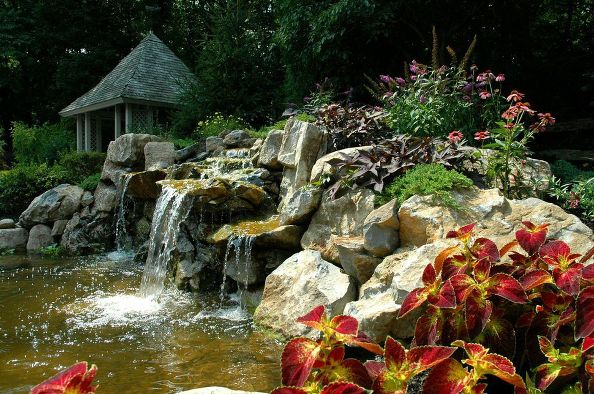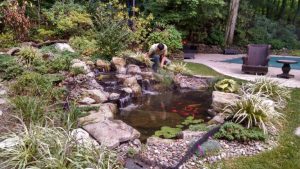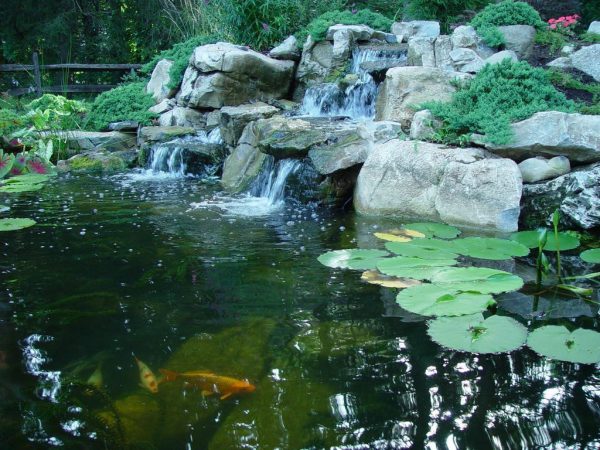Can Pond Fish Survive in a Frozen Pond?
December 2018 weather in Long Island, NY, has hovered around 50 degrees.
However, recent news that the Polar Vortex may very soon cause the northeast some winter trauma suggests we should all give a thought to our backyard ponds and especially our pond fish.
The big question is:
Can Koi Survive in Frozen Ponds?
Some pond owners remove their koi for safe keeping in a warmer place. That is not necessary, say experts. However, it’s important to remain alert, especially if the weather gets particularly bad.
Your koi will happily lie dormant during winter months and can survive in a frozen pond as long as they can get enough oxygen. This requires;
- two feet of water to swim in,
- oxygenating the water by running waterfalls into the pond etc.,
- and keeping a hole in the ice with a heater, bubbler and an aerator, thereby allowing the naturally produced gasses to escape from under the ice.
If the above efforts fail to keep it from freezing, Aquascape Inc. designs manager, Gary Gronwick, suggests using a pond de-icer.
“This will keep a little hole in the ice so gases can escape,” he says. “While some recommend boiling water to create an opening in frozen-over ponds, that should be discouraged. It will only ice up again quickly.“
Gronwick also says to avoid chopping or sawing the ice to open a hole. The noise and vibrations will stress out the hibernating fish to a point they could die.
That done, Mother Nature will do the rest. The fish will spend the entire winter hibernating at the bottom of the pond, or in a cave designed for this, and then will slowly wake up as the water warms in the spring. The fish do not need to eat during this time and, in fact, shouldn’t be fed at all.
If you haven’t done this already, before any brutal weather sets in, carefully look over your plant material and remove dying plant material. Otherwise, these will rot and build up poisonous gases that can’t escape through ice when it forms. Such conditions might mean that the koi are no longer simply hibernating, but are in a dangerous state of torpor.
Running waterfalls during cold months helps move the water so ice doesn’t form. But if ice builds up, pond aerators can put bubbles back in the water to add oxygen for the fish.
This pond has been cleared of excessive plant material and ice does not cover over the pond so that the fish are happily hibernating.
So! If the Polar Vortex throws us all it’s got, you don’t need to worry too much about your fish. Ensure they have enough oxygen, etc., and they should be just fine.
Merry Christmas, everyone!

